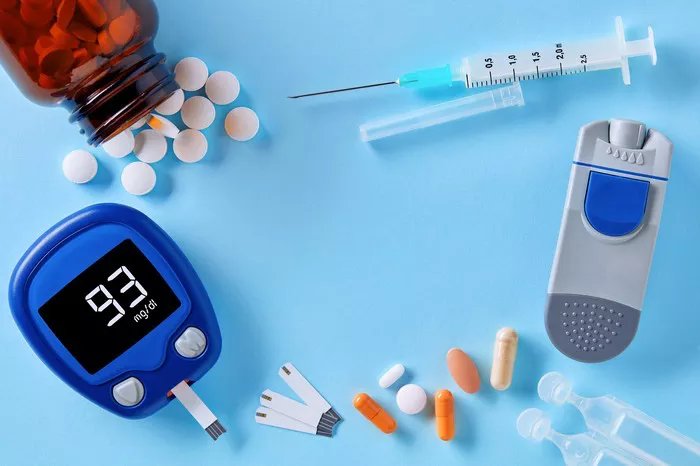Diabetes mellitus is a prevalent chronic condition affecting millions of people worldwide. Central to its pathology is insulin resistance, a condition where the body’s cells fail to respond effectively to insulin, leading to elevated blood sugar levels. In this article, we delve into the definition, mechanism, risk factors, symptoms, health implications, diagnostic tests, prevention, management, treatment options, and the importance of awareness regarding insulin resistance.
What Is Insulin Resistance?
Insulin resistance refers to a condition in which cells in the body become resistant to the effects of insulin, impairing their ability to absorb glucose from the bloodstream effectively. As a result, blood sugar levels remain elevated, leading to various health complications over time.
Mechanism
Insulin plays a crucial role in regulating blood sugar levels by facilitating the uptake of glucose into cells. When insulin resistance occurs, the cells become less responsive to insulin’s signals, disrupting this process. As a result, glucose accumulates in the bloodstream, leading to hyperglycemia.
Risk Factors
Several factors increase the risk of developing insulin resistance, including obesity, sedentary lifestyle, genetic predisposition, ethnicity, and certain medical conditions such as polycystic ovary syndrome (PCOS). Individuals with these risk factors should be particularly vigilant in monitoring their insulin sensitivity.
Symptoms
Recognizing the symptoms of insulin resistance is essential for early intervention. Common signs include increased hunger, fatigue, difficulty losing weight, frequent urination, and the presence of dark patches of skin known as acanthosisnigricans.
Health Implications
Untreated insulin resistance can have serious health implications, including an increased risk of developing type 2 diabetes, cardiovascular disease, stroke, and other metabolic disorders. Managing insulin resistance is crucial to mitigate these risks and improve overall health outcomes.
Diagnostic Tests
Diagnosing insulin resistance typically involves a series of tests to evaluate glucose metabolism. These tests may include fasting blood glucose levels, oral glucose tolerance tests (OGTT), and hemoglobin A1c (HbA1c) tests. These diagnostic tools help healthcare professionals assess insulin sensitivity and identify individuals at risk of developing diabetes.
Prevention and Management
Preventing and managing insulin resistance requires a comprehensive approach. Adopting a healthy lifestyle that includes a balanced diet, regular physical activity, weight management, stress reduction, and regular check-ups and screenings can help improve insulin sensitivity and prevent the progression of insulin resistance.
Treatment options for insulin resistance may include lifestyle modifications such as dietary changes and exercise regimens, medication such as insulin-sensitizing drugs or diabetes medications, and regular monitoring of blood sugar levels to ensure optimal management of glucose metabolism.
Emphasizing the importance of awareness and early detection of insulin resistance is crucial in preventing its complications and improving overall health outcomes. Educating individuals about the risk factors, symptoms, and management strategies can empower them to take proactive steps towards better health.
Conclusion
Insulin resistance is a significant contributor to the development and progression of diabetes and its associated complications. By understanding its definition, mechanism, risk factors, symptoms, health implications, diagnostic tests, prevention, management, treatment options, and the importance of awareness, individuals can take control of their health and reduce their risk of developing diabetes and other metabolic disorders. Implementing lifestyle changes and seeking timely medical intervention are key to effectively managing insulin resistance and improving overall well-being.
Related Topics:
Insulin Resistance vs Diabetes: What is the Difference?



























